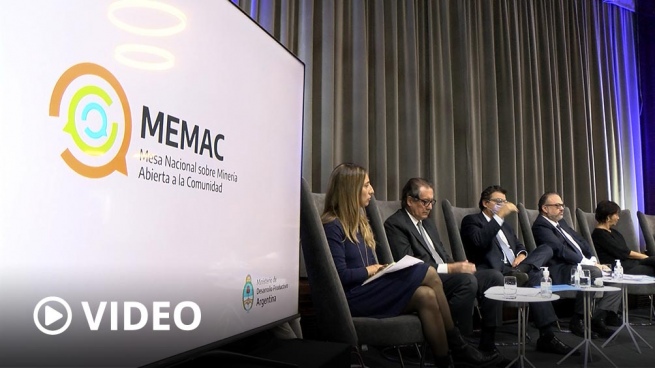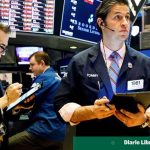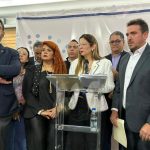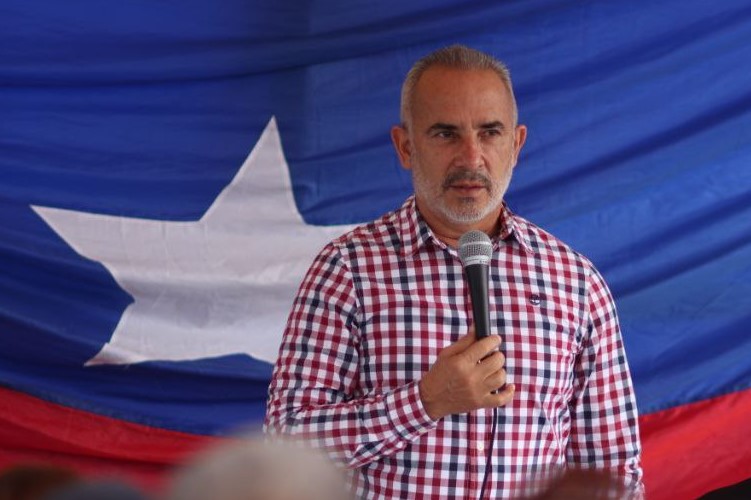Officials of the national government, businessmen and trade unionists highlighted this Monday the role of mining in the economywhile supporting the initiative to address a debate on the health and environmental impact of the activity with accurate and up-to-date information, within the framework of greater openness to society.
This was stated at the First Meeting of the National Board on Mining Open to the Community (Memac), with which it seeks to set up a forum for debate that “allows clearing up certain doubts” related to environmental, labor, tax and security aspects. contribution to economic and social development.
At the meeting, he presented Information System Open to the Community on Mining Activity in Argentina (Siacam), through which data on the economic, geological, social, health and environmental aspects of the sector will be offered periodically.
The Siacam presentation was given by the coordinator of the Argentina Productiva 2030 Plan and director of the Center for Production Studies (CEP XXI), Daniel Schteingart, who argued that “the national State must make a self-criticism” for not having generated ” the necessary information tools to provide confidence and build mining that is a lever for economic, social and community development”.
In this regard, the Minister of Productive Development, Matías Kulfas, I call “explain, communicate and deconstruct some myths” around mining and called for a debate on the importance of the activity within the framework of a “frank, open dialogue”, in which “any expression of violence” will be rejected, alluding to certain forms of protest by environmental groups.
Kulfas assured that the Government does not conceive of “mining that ignores environmental issues” and stressed that the sector “can offer Argentina part of the solutions to the problems it has”, given that “it is in a hinge stage and the world demands more and more minerals, which it needs in the framework of the energy transition”.
The minister responded to the proposals of the environmental organizations that participated and said that “it is absolutely false” that mining activity is not controlled“because all the samples taken are analyzed in the Customs laboratories.”

The president of the Central Bank, Miguel Pesce, said that the sector contributes US$ 3,000 million a year to exports, stressed that “for every dollar invested, 4 dollars of surplus are generated in the exchange balance” and remarked that it is “key to reach the goal” of US$ 100,000 million in foreign sales.
The head of the monetary authority highlighted that mining not only has an exchange surplus and commercial, but it has a surplus in foreign direct investment, and in the last 10 years the country received investments from the sector for US$ 5,700 million and net loans for US$ 5,000 million.
For his part, the Minister of Labor, Claudio Moroni, highlighted the importance of the development of the mining industry in the country because it generates a “very strong” impact on employment and the development of investments.
Moroni explained that the sector “employs 29,000 workers who are highly professional, middle-aged, highly educated,” with wages that are “two and a half times higher than the general industry average.”
The head of the Federal Administration of Public Revenues (AFIP), Mercedes Marcó del Pontpointed out that this year mining will exceed the historical 3% of the total contribution to tax collection and assured that the “discussion on the exploitation and industrialization” of natural resources “is the DNA of any debate on economic development.”
Likewise, the secretary of Climate Change, Sustainable Development and Innovation of the Ministry of Environment and Sustainable Development, Cecilia Nicolini, remarked that there is “social consensus and at the country level” that “it is not possible to continue producing as in the last century”, and assured that, in terms of mining, “things can be done differently”.
The president of the Argentine Chamber of Mining Entrepreneurs (CAEM), Franco Mignacco, considered “essential that areas be fostered that allow technical and scientific rigor to be given to the conversations on mining”, while the general secretary of the Argentine Mining Workers’ Association ( AOMA), Héctor Laplace, asked that the sector “get its legs muddy” since “closed events where the same people always meet are worthless”.



















